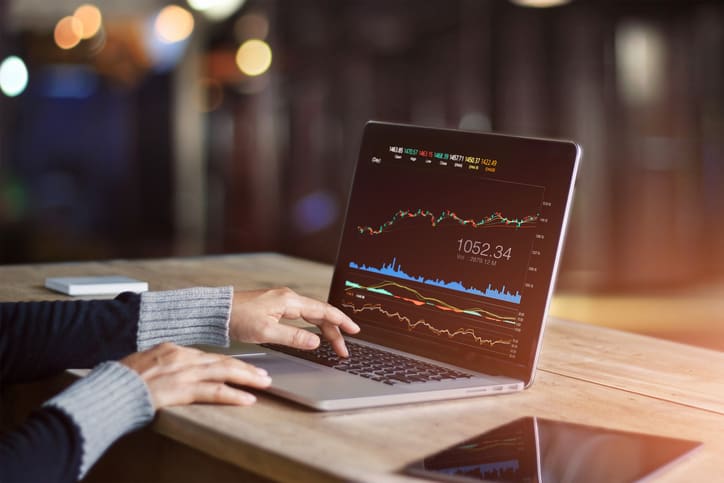You may want to start this new year trying different types of investing. But with lots of different markets to invest in, it can be hard to know where to focus your attention. If you are starting to explore different options and wondering what forex trading is, then we are here to help.
What is forex trading?
Forex trading, which is the same as currency trading, is the conversion of one currency into another.
It is one of the most actively traded markets in the world. Individuals, banks and businesses carry out millions of forex transactions every single day.
Here are some key things you need to know about forex trading:
It’s global
There is no central exchange for forex trading. It’s not like you are using the London Stock Exchange.
Instead, it is traded via a global network of banks, dealers and brokers. Which means that trading happens 24/7, Monday to Friday.
Prices are quoted in pairs
When looking at currency prices, you will find them in pairs. The currency you are selling and the one you are buying.
One currency is the base currency, the other is the quote. The difference between the two is known as the spread.
In very basic terms, you would buy a currency pair if you thought the base currency would strengthen against the quote currency. You would sell if you thought the base was going to weaken against the quote.
The market can be volatile
The extended trading hours and the global nature of forex trading mean that it can be quite volatile.
Prices can be affected by things such as interest rates or government policies. And as forex traders are in it for the profit, price movements on some currencies can be quite extreme.
Is it legal in the UK?
Forex trading is completely legal in the UK. In fact, we are known for our regulation and reliable companies.
If you are interested in dipping your toe into the forex trading pool, then maybe look for an FCA-regulated broker. This will then offer you some protection, and you can be confident that they are a straight-shooting business.
Why trade this way?
You may be wondering why you should use forex trading when it can seem confusing and volatile. Well, it’s those characteristics that mean that you can potentially make big gains from it.
The volatility of forex trading means that you could find yourself making a decent sum of money speculating on price movements. However, be warned: this could also work against you, and you could expose yourself to losses.
Meanwhile, the 24-hour nature of the market means that you can take advantage of different active sessions. You are not tied into a central exchange, so you can make the most of the freedom.
Finally, it is a big market. Large numbers of buyers and sellers are trading away at any one time. So if you decide to try forex trading, you will find that transactions are completed quickly and easily.
And ‘spreads’ (don’t worry, I did mention them earlier) are tight. So the underlying market price of the pair won’t need to move a huge amount in order for you to be able to make a profit.
Who is forex for?
Most importantly, here’s our warning: forex trading can be extremely challenging for beginners, as there is a very high level of risk involved. While it’s not strictly impossible as a newbie to grow your money pot through it, you would need to really know your stuff and be hands on.
This is mainly because of how quickly the market changes. Surges in currency prices and the speed at which things can change mean that you could likely lose money if you are not monitoring your investments closely. It’s also true that forex providers often push huge levels of leverage – and at high leverage, even small market fluctuations can wipe out a trader’s entire position..!
For these reasons, we don’t believe forex trading is suitable for novice investors on the whole.
Where can I find more information?
If you are keen to learn more about different types of trading or investment, take a look at our top picks for share dealing accounts. Or check out our five tips for a diversified portfolio if you’re a new investor.







